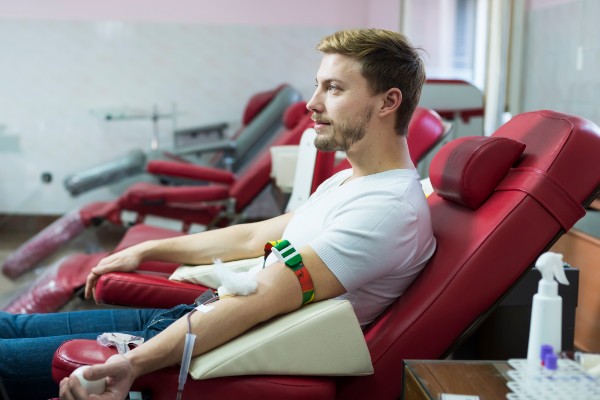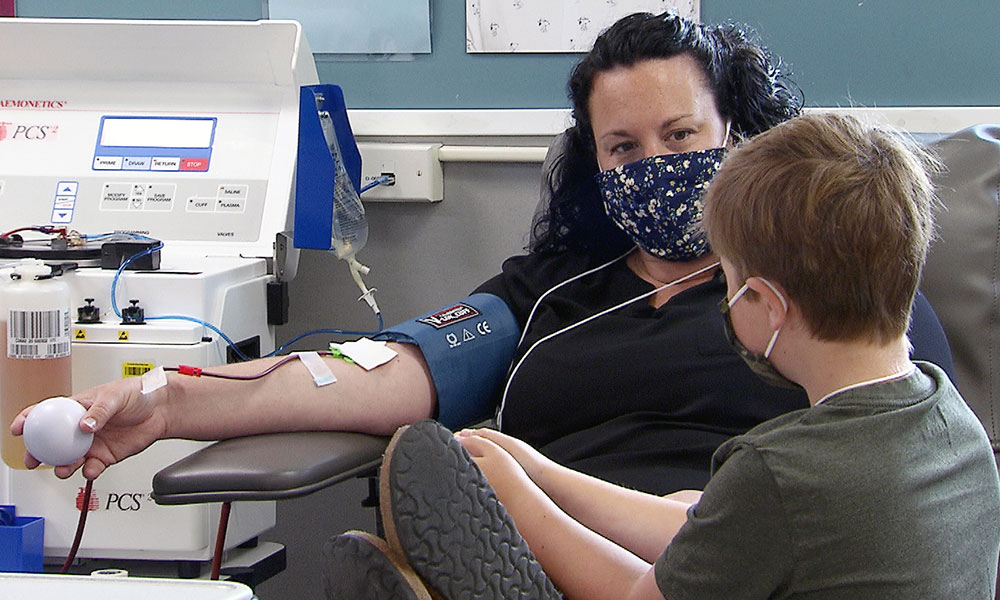Key Takeaways:
- Plasma donations are essential for saving lives and improving health.
- Plasma is used in the treatment of severe burns, trauma, and shock.
- Plasma is also used in the production of life-saving medications.
- Plasma contains proteins like albumin, immunoglobulins, and clotting factors.
- Eligibility criteria for plasma donation include age, weight, and good health.
- Prepare for plasma donation by staying hydrated and eating a nutritious meal beforehand.
- During the donation process, blood is collected and plasma is extracted.
- Donating plasma in Salt Lake City provides access to modern collection centers.
- Being a plasma donor contributes to a strong community of donors.
- Plasma donation offers the satisfaction of saving lives and financial compensation.
The Importance of Plasma Donations
Plasma donations play a vital role in saving lives and improving the health of individuals in need. Plasma, the liquid component of blood, is rich in proteins and antibodies that are crucial for various medical treatments and therapies. By donating plasma, individuals have the opportunity to make a significant impact on the lives of patients in Salt Lake City and beyond.
The Lifesaving Potential of Plasma
Plasma donations have the potential to save lives in many ways. One of the most critical uses of plasma is in the treatment of patients with severe burns, trauma, and shock. In these cases, plasma is administered to restore blood volume, provide essential proteins, and promote healing.
Additionally, plasma is used in the production of life-saving medications such as immunoglobulins and clotting factors. Immunoglobulins are essential for individuals with immunodeficiency disorders, while clotting factors are crucial for those with bleeding disorders such as hemophilia. Without plasma donations, patients with these conditions would not have access to the necessary treatments.
Plasma: A Vital Component in Medical Treatments
Plasma contains a wide range of proteins that are essential for various medical treatments. One such protein is albumin, which helps maintain blood volume and regulate fluid balance in the body. It is used in the treatment of individuals with liver disease, severe infections, and certain types of cancer.
Another critical component of plasma is immunoglobulins, also known as antibodies. These antibodies are responsible for fighting off infections and diseases. They are used in the treatment of individuals with primary immunodeficiency disorders, autoimmune diseases, and certain neurological conditions.
Plasma is also a rich source of clotting factors, which are necessary for blood clot formation. Patients with bleeding disorders, such as hemophilia, rely on these clotting factors to prevent excessive bleeding and promote wound healing.

Understanding the Plasma Donation Process
Before embarking on the journey of plasma donation, it is essential to understand the process itself, including eligibility requirements, preparation, and what to expect during the donation process.
Eligibility and Qualifications for Donation
To ensure the safety and effectiveness of plasma donations, certain eligibility criteria must be met. In Salt Lake City, potential plasma donors must generally be between the ages of 18 and 69, weigh at least 110 pounds, and be in good overall health. Donors must also undergo a screening process to determine their eligibility, which may include a medical history review, a physical examination, and testing for infectious diseases.
It is important to note that eligibility requirements may vary slightly between different plasma collection centers. Therefore, it is advisable to contact your local center or visit their website to obtain the most accurate and up-to-date information regarding eligibility and qualifications.
Preparing for a Plasma Donation
Preparing for a plasma donation involves taking certain steps to ensure a successful and comfortable experience. It is recommended to stay well-hydrated in the days leading up to the donation and to eat a nutritious meal before arriving at the donation center.
It is also important to avoid caffeine and tobacco products before the donation, as they can affect the quality of the plasma. Additionally, it is advisable to get a good night’s sleep and avoid strenuous physical activity on the day of the donation.
What to Expect During the Donation Process
When you arrive at the plasma collection center, you will be greeted by friendly staff who will guide you through the donation process. The process typically involves several steps, including registration, a pre-donation screening, the actual donation, and a post-donation recovery period.
During the pre-donation screening, a medical professional will review your medical history, perform a brief physical examination, and check your vital signs. This is done to ensure your safety as well as the quality of the plasma being donated.
The actual donation process involves the collection of blood, which is then processed to extract the plasma. This is usually done using an automated plasma collection system, where blood is drawn from one arm, the plasma is separated, and the remaining blood components are returned to the other arm.
After the donation is complete, you will be provided with a recovery period to rest and rehydrate. It is common to experience mild fatigue or lightheadedness after donating plasma, but these symptoms typically resolve quickly.
Advantages of Donating Plasma in Salt Lake City
Plasma donations in Salt Lake City offer several advantages, including access to state-of-the-art plasma collection centers and the opportunity to contribute to a strong community of plasma donors.
Access to State-of-the-Art Plasma Collection Centers
Salt Lake City is home to modern plasma collection centers that are equipped with advanced technology and staffed by highly trained professionals. These centers prioritize donor safety and comfort, ensuring that the plasma donation process is efficient and pleasant.
State-of-the-art collection centers also employ strict quality control measures to ensure the safety and effectiveness of the donated plasma. They adhere to rigorous standards set by regulatory bodies such as the Food and Drug Administration (FDA) and the American Association of Blood Banks (AABB).
Contributing to a Strong Community of Plasma Donors
By donating plasma in Salt Lake City, you become part of a strong community of individuals who are committed to making a difference in the lives of others. Plasma donation centers often foster a supportive and inclusive environment, where donors can connect and share their experiences.
Being part of a community of plasma donors can be rewarding, as it provides an opportunity to learn from others, contribute to ongoing research and advancements in medical treatments, and build lasting relationships with fellow donors.
Benefits and Rewards of Being a Plasma Donor
Beyond the satisfaction of knowing that you are saving lives and making a significant impact, there are additional benefits and rewards associated with being a plasma donor.
The Satisfaction of Saving Lives
Knowing that your plasma donation has the potential to save lives is immensely fulfilling. Every unit of plasma can be used to help multiple patients, providing them with the necessary treatments and improving their quality of life. The feeling of making a tangible difference in someone’s life is truly invaluable.
Financial Compensation for Plasma Donations
In addition to the emotional rewards, many plasma donation centers offer financial compensation to donors. This compensation serves as a token of appreciation for your time, commitment, and generosity.
While the amount of financial compensation may vary between different centers and locations, it is important to note that donating plasma should not be considered as a primary source of income. Instead, it should be viewed as an opportunity to contribute to the well-being of others while receiving a modest compensation.
It is essential to consult with individual plasma collection centers to understand their specific compensation policies and procedures.
Overall, donating plasma in Salt Lake City is a truly lifesaving act that benefits both the donors and the recipients. By understanding the importance of plasma donations, the donation process, and the advantages and rewards, individuals can make an informed decision to contribute to this noble cause. Your plasma donation has the power to transform lives, and your generosity will always be remembered and appreciated.


